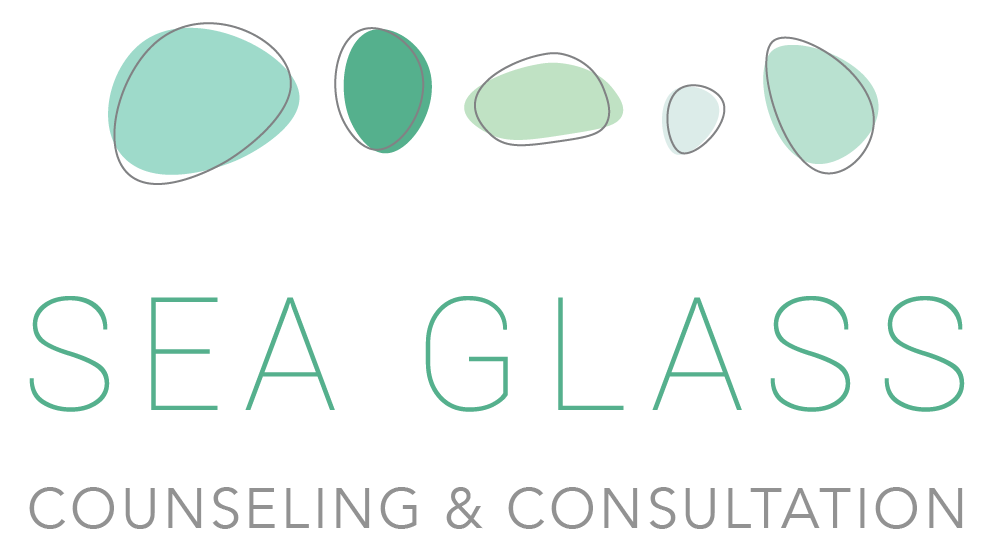Are You Depressed, or Burned Out?
The word “burnout” seems to get thrown out a lot when talking about problems at work. We’ve been hearing a lot more about it the last several years. The term was actually coined in the 1970s by psychologist Herbert Freudenberger to describe the negative impacts of high stress and high ideals experienced by those in helping professions. Burnout is essentially the consequences of unlimited self-sacrifice. In 2019, “burnout” was officially recognized as an occupational phenomenon by the World Health Organization. It may be important to note that depression is a medical, mental health condition, while burnout is not considered a medical condition. Research suggests that burnout instead is a contributor to many physical and mental health conditions.
So what exactly is burnout, and how is it different than depression? While they share some similarities, understanding the distinctions between the two is crucial for accurate identification - which leads to proper support, effective treatment, and saves you time, money, and further emotional distress. Let’s explore some of the key differences between depression and burnout.
Symptoms and Impact
Like many other mental health conditions, depression and burnout can manifest with overlapping symptoms, which is why it’s important to connect with a licensed mental health professional to help you clarify whether your low emotional state is due to depression or burnout - and whether you’re dealing with a mental health condition, or occupational hazard that could lead to one.
Depression and burnout may look similar, but it’s important to understand the distinctions that make them different. Working with a certified EMDR therapist can help you better understand your symptoms and heal from the experiences contributing to either depression or burnout.
For both depression and burnout, individuals may experience low mood, trouble focusing, trouble falling or staying asleep, fatigue, digestive problems, increased physical ailments. Depressive symptoms often begin inward, then expand outward to affect other areas of the person’s life, like their relationships, hobbies, or work functions. In contrast, burnout often begins outward with work stress and seeps inward to affect other areas of the person’s life.
Depression typically involves persistent emotions of sadness, emptiness, and hopelessness - sometimes experienced with thoughts of suicide. It often has a pervasive impact on all aspects of life, including maintaining personal relationships, ability to perform daily tasks, and enjoyment of previously-pleasurable activities. Burnout, on the other hand, is more characterized by emotional exhaustion, cynicism, feeling detached from work, and a decreased sense of accomplishment related to work goals or other specific, self-sacrificial areas of life (parenting, caregiving, homemaking, etc).
Causes and Triggers
Depression likely has various contributing causes - including stressful life events, trauma, chronic illness, physical conditions, genetic factors, hormone levels, and lifestyle factors (social support, economic stability, relationship dynamics, nutrition, sleep hygiene, and exercise habits). Think of depression more as a puzzle - there’s many contributing pieces that make up the whole thing. It’s often difficult to pinpoint one main cause of depression, because there isn’t just one. (Ever heard that depression is caused primarily by a chemical imbalance in the brain? Recent research says that’s a convenient, nicely-packaged way to think of it, but not necessarily true.)
Burnout, on the other hand, does have a primary cause: chronic work-related stress. Contributing factors to burnout include excessive workload, lack of control, little to no recognition, long working hours, a difficult work environment, limited opportunity for rest and recovery, little to no boundaries between work and rest, unclear roles and expectations, responsibility for things outside of your control, and a mismatch between an individual's values and their job. Notice how all of these symptoms are tied directly into the workplace environment, vs your own personal biology, history, and lifestyle? Individual factors contribute to depression, while systemic factors contribute to burnout.
Duration and Recovery
Depressive symptoms can last weeks to years. A minimum of two weeks is required for an official depression diagnosis using the DSM-5. Depression is a medical condition requiring treatment from licensed professionals. Depression treatment typically includes therapy, medication, and lifestyle changes.
Burnout gradually increases over time in response to chronic stress; there’s no specific time limit required to categorize your experiences as burnout. Addressing burnout may involve making changes to the work environment, your career, setting boundaries, and seeking professional guidance. I would highly encourage anyone experiencing burnout to work with a licensed mental health professional, because of the risk of burnout leading to mental health conditions like anxiety, depression, secondary trauma, or other medical concerns. With proper work-life balance, a supportive work environment, good self care and boundaries, and fulfilling relationships and hobbies outside of the office, individuals experiencing burnout can often recover and regain their energy and enthusiasm for work.
Therapy Can Help
Whether you are struggling with depression or burnout, professional counseling should be a primary treatment approach. Many of our clients at Sea Glass are medical professionals, teachers, moms, therapists, and other types of helpers and healers - folks in the highest risk category for burnout. One of my favorite tools to use with my clients in helping professions is the Professional Quality of Life Measure (ProQOL-5). This self-assessment is a screening tool to help you identify whether you’re dealing with burnout, or if it’s progressed to secondary trauma. If you think you might be suffering from burnout, don’t wait to get started. Healing is possible.
Sea Glass Counseling and Consultation is an EMDR therapy practice in Dublin, Ohio. Our compassionate, skilled therapists use evidence-based techniques grounded in the neurobiology of stress, trauma, and relationships to make sure your treatment is personalized and effective. Sea Glass therapists provide telehealth counseling in Ohio for individuals and couples. We’re best known for providing Intensive EMDR therapy, anxiety treatment, and sex therapy for Christians. Interested in working together? Contact us today to get started with a Certified EMDR therapist in Ohio.

